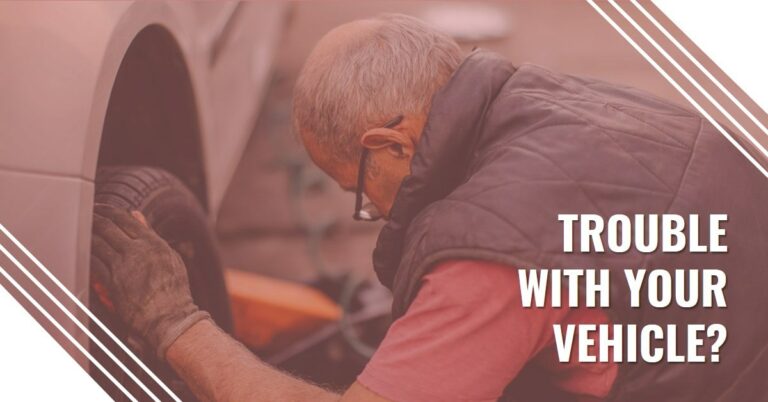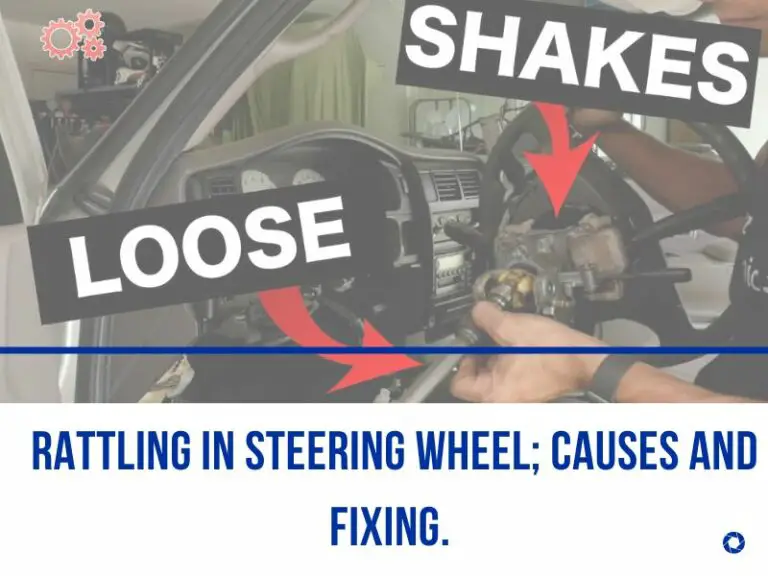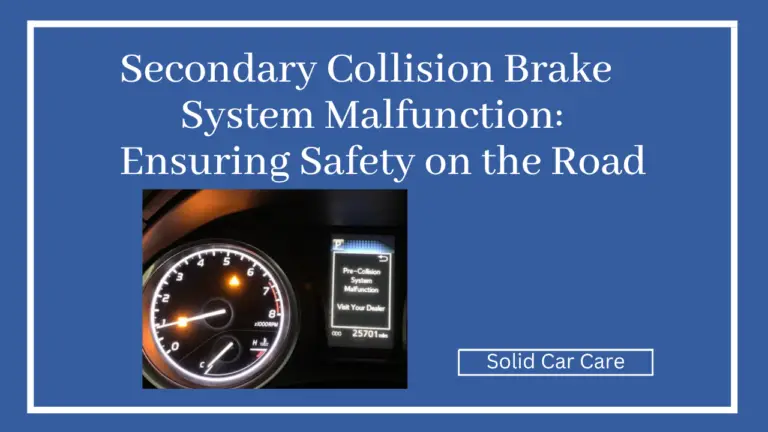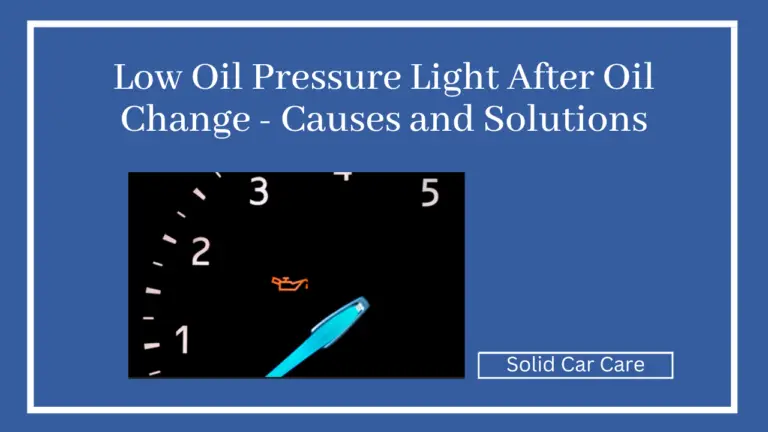Car Sounds Like Air Escaping When Turned Off; Causes and Fixing
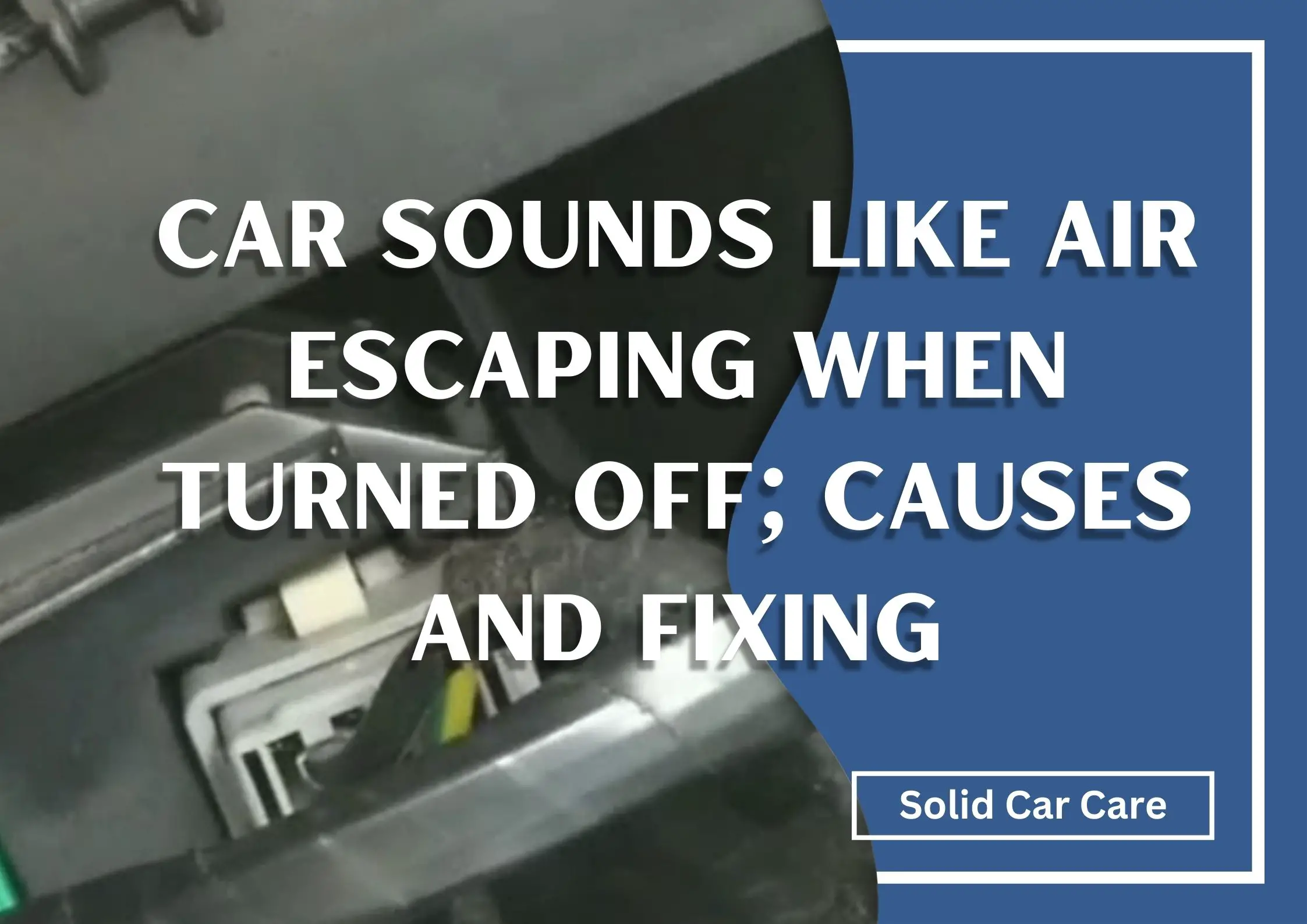
As a mechanic, I often get asked about a common problem that car owners experience: a sound like air escaping when their vehicle is turned off. This sound can be caused by a few different issues, including
- A vacuum leak,
- A faulty PCV valve, or
- A failing brake booster.
Understanding these possible causes is key to diagnosing and fixing the problem. In this article, I’ll walk you through the main reasons your car might be making a sound like air escaping when turned off and provide some tips on how to address the issue.
Table of Contents
- Why does my engine sound like it’s leaking air?
- Why does the car hissing when turned off?
- Car sounds like air escaping when accelerating; Why?
- How much time and cost will a repair take?
- Some related FAQs
Why does my engine sound like it’s leaking air?
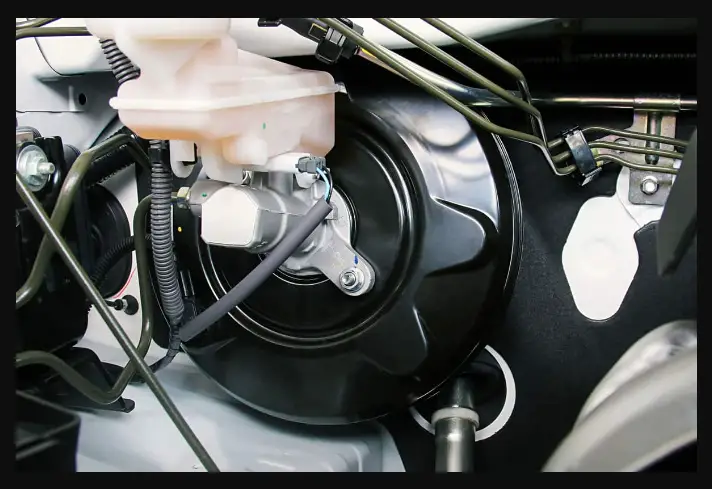
A sound like air escaping when a car is turned off can be caused by a vacuum leak, a faulty PCV valve, or a failing brake booster. A vacuum leak occurs when there is a hole or crack in the air intake system, leading to air escaping and a hissing sound. A faulty PCV valve can also cause a hissing sound and lead to oil leaks, poor acceleration, and the check engine light coming on.
A failing brake booster can cause a whooshing sound and affect the car’s braking performance. Diagnosing the root cause of the problem involves performing specific diagnostic steps, such as using a vacuum gauge to check for a drop in pressure, spraying carburetor cleaner around the suspected area, or using a smoke machine to detect the leak.
01. Vacuum Leak
A vacuum leak is a hole or a crack in the engine’s air intake system, which can cause air to escape and lead to a hissing sound.
Symptoms
In addition to the hissing sound, other symptoms of a vacuum leak may include poor fuel economy, loss of power, and the check engine light coming on.
Causes
Some common causes of a vacuum leak include damaged vacuum hoses, a loose or damaged intake manifold gasket, or a broken throttle body gasket.
Diagnostic steps
To identify a vacuum leak, you can use a vacuum gauge to check for a drop in pressure, spray carburetor cleaner around the suspected area to see if the idle changes, or use a smoke machine to detect the leak.
Repair options: Repairing a vacuum leak involves identifying and replacing the damaged component. This may involve replacing a damaged hose or gasket, or using a sealant to repair a crack in the intake manifold.
02. Faulty PCV Valve
The Positive Crankcase Ventilation (PCV) valve reduces emissions and prevents oil leaks by regulating the flow of gases from the crankcase to the intake manifold.
Symptoms
A faulty PCV valve can cause a hissing sound, as well as oil leaks, poor acceleration, and the check engine light coming on.
Causes
A faulty PCV valve can be caused by a clogged valve, a damaged valve or hose, or a malfunctioning sensor.
Diagnostic steps
To identify a faulty PCV valve, you can use a vacuum gauge to check for a drop in pressure, check the PCV valve and hose for damage or clogs, or use a scan tool to read diagnostic trouble codes.
Repair options: Repairing a faulty PCV valve typically involves replacing the valve and any damaged hoses or sensors.
03. Failing Brake Booster
The brake booster is a component that uses vacuum pressure to assist with braking performance.
Symptoms
A failing brake booster can cause a whooshing sound and affect the car’s braking performance, such as requiring more effort to stop the vehicle.
Causes
A failing brake booster can be caused by a damaged diaphragm, a vacuum leak, or a faulty check valve.
Diagnostic steps
To identify a failing brake booster, you can visually inspect the diaphragm and check valve, check for leaks using a vacuum gauge or smoke machine, or perform a brake pedal test.
Repair options
Repairing a failing brake booster typically involves replacing the damaged component, which may involve replacing the entire brake booster or just the diaphragm or check valve.
What Happens If I Remove The ABS Fuse? Must Read
Solid Car Care
Why does the car hissing when turned off?
If you hear a hissing sound coming from your car when it is turned off, there could be several potential reasons for this noise. The exact cause can vary depending on the specific circumstances and the make and model of the vehicle. Here are some common reasons why a car might hiss when turned off:
01. Cooling System
One of the most common reasons for hissing noises in a car is related to the cooling system. After you turn off the engine, the cooling system continues circulating coolant to cool down the engine.
As the hot coolant flows through the cooling system components, it can create hissing or gurgling sounds, especially if air is trapped in the system. This is often a normal sound and not a cause for concern.
02. Pressure Release
Some modern cars have a pressure relief valve or cap in the cooling or fuel systems. These valves are designed to release pressure built up in the system, and when they do so, it can produce a hissing sound. This is typically normal operation and helps prevent damage to the system.
03. Air Conditioning
If you’ve been using the air conditioning system in your car, you may hear a hissing sound when you turn off the engine. This is often due to the release of refrigerant pressure from the A/C system.
04. Exhaust System
A hissing noise can also be related to the exhaust system. There could be a small exhaust leak or a hot component cooling down, causing the metal to contract and produce a hissing sound.
05. Vacuum Leaks
Some cars use vacuum systems for various functions, such as controlling the HVAC (heating, ventilation, and air conditioning) system, power brakes, or emissions control. If there’s a vacuum leak, you may hear a hissing sound after turning off the engine.
06. Tire Pressure
If you hear a hissing sound near one of your tires after turning off the car, it could be due to air escaping from the tire, indicating a slow puncture or leak.
07. Aftermarket Accessories
If your car has aftermarket modifications or accessories, such as a turbocharger, blow-off valve, or aftermarket exhaust, these components may produce hissing noises as they cool down.
It’s important to note that while some hissing noises are normal and harmless, others can indicate a problem requiring attention.
If you’re concerned about a hissing sound coming from your car, especially if it is accompanied by other symptoms like overheating, warning lights on the dashboard, or performance issues, it’s a good idea to have your vehicle inspected by a qualified mechanic. They can diagnose the issue and recommend any necessary repairs or maintenance.
Car sounds like air escaping when accelerating; Why?
If your car makes a sound like air escaping when accelerating, it can be an indication of a few different issues. Here are three possible causes:
01. Intake Manifold Leak
An intake manifold leak occurs when air enters the engine through a hole or crack in the intake manifold. This can cause a hissing sound, especially when accelerating.
02. Vacuum Leak
A vacuum leak in the engine’s air intake system can cause a hissing sound when accelerating and other symptoms like poor fuel economy and loss of power.
03. Turbocharger Issues
If your car is equipped with a turbocharger, a hissing sound when accelerating can indicate issues with the turbocharger, such as a worn or damaged turbine shaft, a loose hose clamp, or a blown gasket.
To diagnose the root cause of the problem, you may need to perform specific diagnostic steps, such as using a vacuum gauge to check for a pressure drop, spraying the carburetor cleaner around the suspected area, or checking the turbocharger for damage or loose connections.
How much time and cost will a repair take?
The time and cost of repairs for a car that makes a sound like air escaping when accelerating can vary depending on the specific cause of the problem.
If the issue is an intake manifold leak, the repair may involve replacing the gaskets, which can cost anywhere from $100 to $300 or more, depending on the make and model of your car. Labor costs may range from $150 to $400 or more, depending on the repair’s complexity and your mechanic’s hourly rate.
For a vacuum leak, the repair may involve replacing a damaged hose or tightening loose connections, which can cost anywhere from $50 to $200 or more, depending on the extent of the damage and the specific components involved. Labor costs may range from $75 to $200 or more.
The repair can be more complicated and expensive if the issue is related to the turbocharger. Repair options may include replacing worn or damaged components, such as the turbine shaft or gaskets, or replacing the entire turbocharger.
The cost of these repairs can vary widely, from several hundred dollars to several thousand dollars or more, depending on the make and model of your car and the specific components that need to be replaced.
Rough Idle No Check Engine Light; What Should You Do?
Solid Car Care
Some related FAQs
Is it safe to drive my car if it’s making a sound like air leaks?
While it may be safe to drive your car in the short term, it’s important to address any unusual sounds in your car promptly to prevent further damage and ensure safe operation on the road.
Can a sound like air escaping affect my car’s performance?
A: Yes, depending on the specific cause of the sound, it may indicate a problem with the engine’s air intake system or turbocharger, which can cause poor fuel economy, loss of power, or other performance issues.
Can I diagnose and repair the problem myself?
Depending on your level of expertise and the specific cause of the problem, you may be able to diagnose and repair the issue yourself. However, it’s important to use caution when working on your car’s engine, as even small mistakes can cause significant damage or injury.
How do I find a qualified mechanic to diagnose and repair the issue?
Look for a mechanic who is experienced and knowledgeable about your specific make and model of car, and who has a reputation for quality work and fair pricing. You may also want to read reviews and ask friends or family members for recommendations.
How can I prevent this issue from occurring in the future?
Regular maintenance, including oil changes, air filter replacements, and routine inspections, can help prevent issues with your car’s air intake system or turbocharger. It’s also important to address any unusual sounds or performance issues promptly, to prevent further damage and ensure safe operation on the road.


